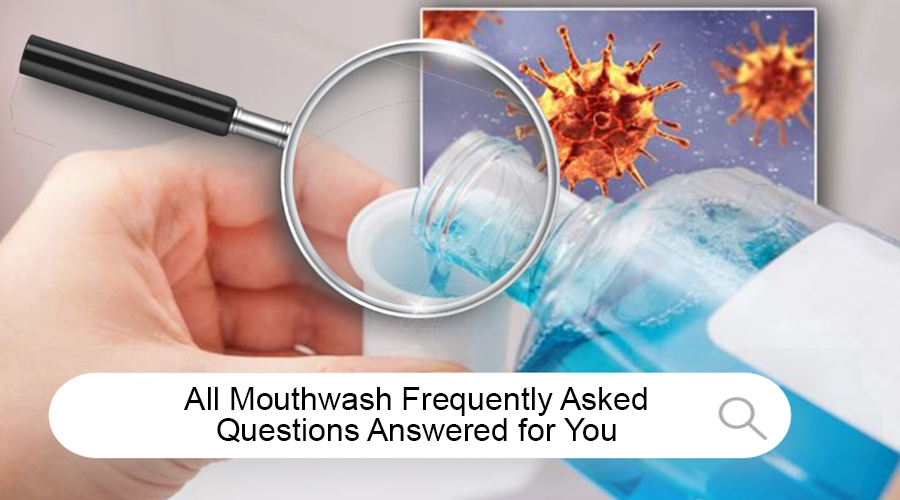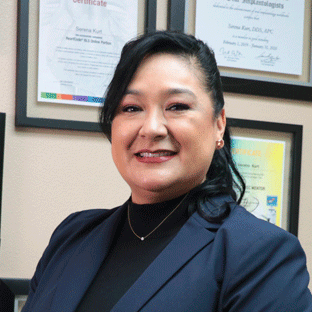People often find themselves confused about dental products and are curious about how to use them, which ones are a must and how they exactly help your oral health.
Mouthwash is one of them. However, you might not be entirely sure if it should be an essential part of your hygiene routine or if it’s okay not to include it at all.
This time, we’ll be answering the most common questions about this cleaning method and give you some useful tips to implement it in your routine according to your mouth’s needs.
Question #1: Can Mouthwash Stain Your Teeth?
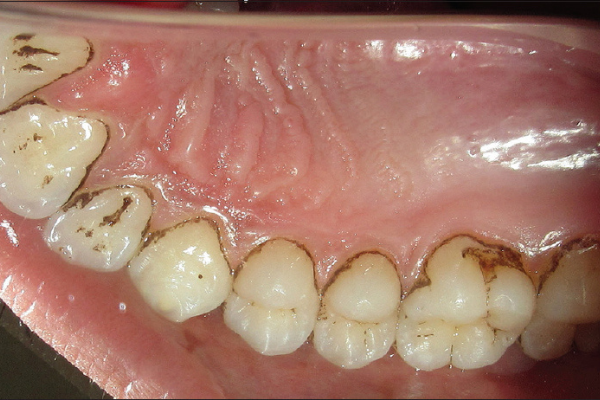
Unfortunately, some mouthwashes can cause tooth discoloration and reduce the overall attractiveness of your smile.
Gum disease is frequently treated with mouthwashes containing an ingredient called chlorhexidine gluconate (or CG). Even in over-the-counter mouthwashes, CG is quite effective at treating active gum disease.
However, CG is highly effective at staining teeth, and modest at-home remedies are unlikely to be sufficient to prevent this side effect.
Dr. Serena Kurt, a Clairemont cosmetic dentist, can offer various teeth whitening options to restore the luster and beauty of your smile if your teeth have stains because of mouthwash.
She’ll help you choose which one is best during your appointment based on your specific needs.
Question #2: Does Mouthwash Have Side Effects?
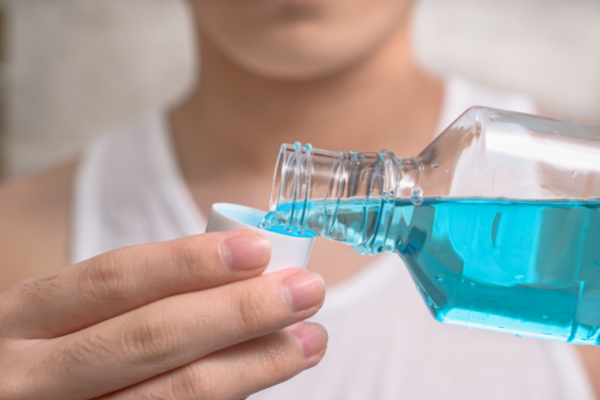
Mouthwash is perfectly OK because it is meant to combat foul breath. However, mouthwash contains antiseptic compounds that fight bacteria and, if used excessively, can harm the oral cavity’s environment, resulting in a bad smell.
Mouthwash contains antiseptics that fight plaque, protect teeth from damage, and mask bad breath. When mouthwash is used without explicit guidelines, the following things are more likely to happen:
- A burning sensation in the mouth
- Teeth discoloration
- Oral pain
- Oral cancer
Because of all of the side effects mentioned above, it is best if you use mouthwash according to the indications and regulations prescribed by dentists, who also recommend using mouthwash as an addition to your regular dental hygiene routine.
Question #3: Are You Supposed to Wash Mouth After Mouthwash?
The one thing that everyone is curious about. Let’s start by clarifying that depending on the mouthwash brand you use, the directions could differ. Therefore, the process will change as well.
Always follow the instructions on the package rather than what you read in any article. But we’ll still share with you the most common order in which people do it. Take a look:
Step 1. Brush your teeth
Begin by brushing and flossing your teeth thoroughly.
Wait a few minutes after brushing with fluoride toothpaste before applying mouthwash. The concentrated fluoride in toothpaste can be washed away by mouthwash, and you need it to strengthen your teeth.
Step 2. Get the mouthwash
Fill the cup that comes included with the product or a plastic measuring cup halfway with your preferred oral rinse.
Use only the amount of mouthwash recommended by the manufacturer. It usually ranges from 3 to 5 teaspoons.
Step 3. Rinse!
Swish the cup around in your mouth after emptying it. Make sure not to drink it. You’re not meant to ingest it, and drinking water won’t help.
Gargle for 30 seconds while you’re rinsing. You might wish to set a timer on your clock or mentally count to 30. Try your best to reach the mark so that it is effective.
Step 4. Spit it out
Spit it into the sink, spit away from the mouthwash.
Question #4: How to Choose the Right Mouthwash for You?
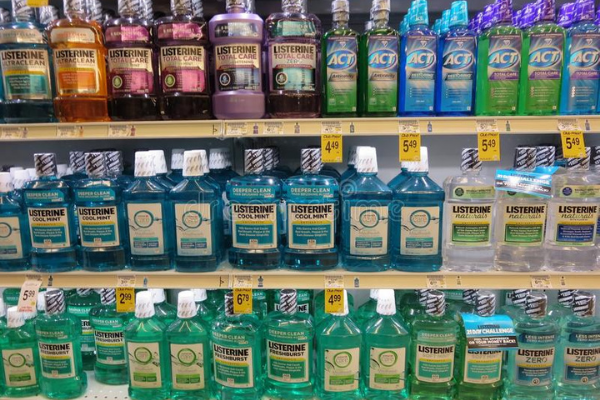
Which mouthwash is ideal for you depends a lot on your existing dental health. If you struggle with sensitivity, gingivitis, bad breath, or dry mouth. This information is far more crucial than you may believe.
Always seek the American Dental Association’s Seal of Acceptance, regardless of how you want your mouthwash to perform.
The ADA, an independent scientific organization, has evaluated and confirmed the claims mentioned on the box, such as whitening, antibacterial, anti-plaque, and so on.
Depending on your needs, these are some recommendations:
Dry mouth
Mouthwashes containing alcohol should be avoided if you have a dry mouth. Your mouth will get even drier due to the alcohol, worsening the symptoms and increasing your discomfort.
If your dry mouth symptoms are too severe, artificial saliva and specialty rinses designed for dry mouth relief may be a good option.
Sensitivity
Tooth sensitivity can be a bothersome and unpleasant reality. There are, however, mouthwashes that can anesthetize and strengthen your teeth and dentin, reducing or eliminating dental sensitivity.
Gingivitis and gum disease
Gingivitis is a severe disease, whether you have it, are at risk for it, or want to avoid it.
Choose a mouthwash that contains anti-plaque, antibacterial, antimicrobial, and anti-gingivitis chemicals to protect your mouth from these problems before they occur.
If your dentist says that you are at risk for or already have gingivitis or gum disease, they will most likely prescribe or recommend a stronger mouthwash containing chlorhexidine to help kill bacteria and restore your dental health.
Always have in mind that mouthwashes aren’t a replacement for brushing and flossing. Instead, you should use mouthwash to complement the results of brushing and flossing.
If you’re still not sure which mouthwash is ideal for you, or if you have any other oral health concerns, our Clairemont dentist, Dr. Kurt, can give you professional advice. Schedule a consultation today and learn more on how to preserve your smile.

